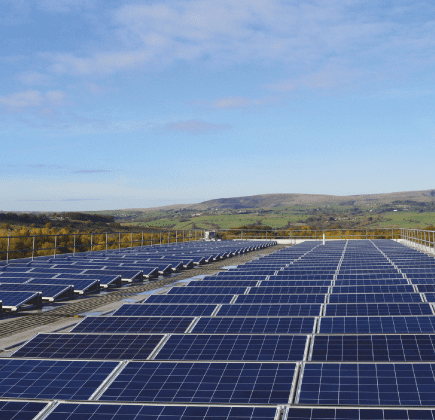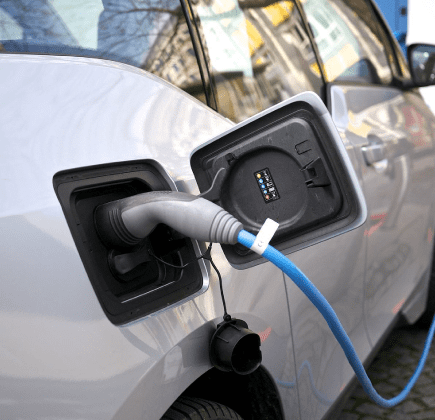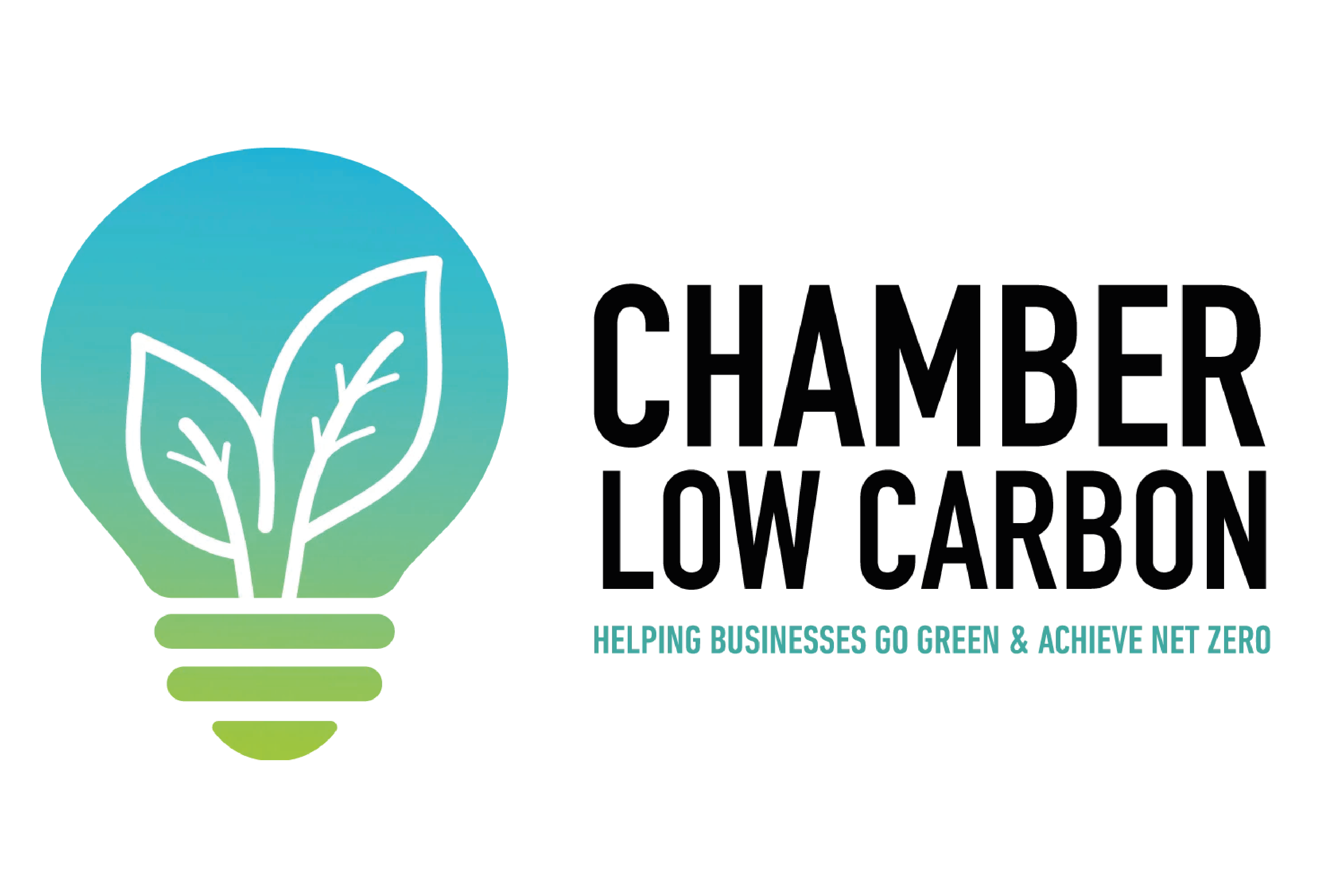
Is the world changing its mind on climate change?
2020 has been a pretty big year for climate action, all set, of course, against the backdrop of the Covid-19 crisis. We’re sure we don’t need to tell you about some of the biggest environmental stories, especially since you may well have had personal experience of them yourself – such as the fresher air outdoors signifying a national drop in emissions, or the steadily rising uptake of commercial solar panels on UK homes and businesses.
But it’s been a year of crazy headlines, and in the run up to the US presidential election back in September, it was easy to miss one of the biggest stories from the United Nations Assembly, in which the Chinese president Xi Jinping announced that China would cut its emissions to net zero by 2060. It was a significant development not just for China, but the rest of the world too, as it stands to have a marked impact on our approach to decarbonisation as a planet.
The thing is that while commercial solar panels bring a whole range of tangible benefits to individual businesses and households, environmental measures on a national scale are typically seen as expensive and time consuming, especially as they affect virtually every element of a country’s economy. But here’s why China’s announcement might just change all that.
Why was China’s announcement such a big deal?
Just a few months ago, if you were to ask a group of experts which country they thought would be the next to make bold commitments to limiting emissions, chances are that relatively few of them would have said it would be China. And yet, here we are. China is the most polluting nation in the world, responsible for over a quarter of global greenhouse emissions. But in September of this year, its president Xi Jinping pledged to cut that back to almost zero within the next four decades. It was a move that very few were expecting, even from within his own country. The head of Greenpeace in China described it as a “happy, happy surprise”.
Now although it’s certainly good news on the surface, there’s no ignoring the likelihood that the announcement was at least partially politically motivated. Certainly the timing is notable. As the Chinese president made his climate promise, he called for global co-operation, and put the spotlight on China’s recent environmental progress. At the time, the US was still embroiled in the last few weeks of a bitter election campaign, during which President Donald Trump was levelling frequent accusations at China on various issues, so the Chinese call for unity stood in clear contrast to those sentiments. It also followed hot on the heels of a bilateral trade summit between Beijing and Brussels, so political observers think that it may well have been at least partially calculated to undermine President Trump.
As far as the world’s climate is concerned though, the political motivations are only relevant insofar as they affect the sincerity behind Xi’s pledge. And if China does make serious steps to follow up on its promise, it could mark the next stage in an intensifying global race to green power.
How will this affect the rest of the world?
Decarbonisation has been a major item on the agenda for European leaders for quite some years now, and indeed leaders view it as the defining issue of our times. In the last few months, the European Union committed billions of euros towards a green stimulus package, and refined its own 2030 climate targets. It’s long been pushing for its member states to commit to increasingly stringent targets themselves, with a combination of incentives and punitive measures – the ‘carrot and stick approach’, in other words.
But for various different reasons, some countries still have a way to go to meet these targets. Some are struggling to implement the necessary logistics and infrastructure, whereas others arguably don’t have the political will to achieve these goals. This is part of the reason why the Paris Climate Agreement was such a significant milestone; it was the first time that so many nations came to a firm, formal agreement about the challenges that the climate crisis posed, and what would have to be done to tackle it.
Even with so many still committed to that accord though, there’s still lingering unease across European nations. Most of it stems in one form or another from this: the fear of taking on the immense cost and challenge of decarbonising their own economy, and then having nobody else follow suit, allowing other countries to enjoy the fruits of decarbonisation without putting in the necessary work themselves. In fact, that’s essentially the reason that President Trump gave for pulling the United States out of the agreement, which was quite a remarkable story in itself.
Now though, China’s announcement could give other nations fresh drive, as it opens up the possibility of the European Union and China forming a ‘carbon cutting coalition’ working to reduce more than a third of the world’s emissions. One particularly noteworthy aspect of Xi’s announcement was that it was unconditional – in other words, China plans to forge on with its commitment whether or not other countries follow suit.
What’s more, regardless of politics, there’s also the market factors to consider. The cost of renewables continues to tumble, with wind, hydro, and of course solar panels already the cheapest energy options in many parts of the world. Indeed, the decreasing costs and carbon savings they offer are both commonly cited by our customers as major factors in their decisions to use commercial solar panels for their own businesses.
If China and the European Union pool their considerable efforts into promoting wind, solar energy and battery investments in the next few years, the growth of renewables is only going to accelerate further. Plus, now incoming US president Joe Biden has pledged to rejoin the Paris Accord, and has promised his voters a $2 trillion green recovery plan. So all told, those are three of the world’s largest economies all focused on a single goal, accounting for more or less half the world’s emissions. Put like that, many observers view it as only a matter of time before the rest of the world’s countries decide to fully pitch in too.
There may soon come a time when climate activists will be preaching to the increasingly converted. Market growth means that investors won’t have to be urged to make the most ethical, environmentally responsible investments. Instead, the greenest options will be some of the most profitable right from the off, so investors won’t have to make the difficult choice between going with their consciences or their financial best instincts.
Of course, all this overlooks one crucial detail: China’s promise of progress is one thing. Achieving it is quite another.
How is the UK doing on climate?
The UK is amongst the many European Nations enjoying the surge in growth of renewables. Wind and solar are now the cheapest forms of new power generation here in Britain, and there’s over 10 gigawatts of large-scale solar being planned on British soil within just the next few years.
What’s more, the Prime Minister has recently proclaimed himself an “evangelist” for green causes, and recently unveiled his 10 point plan to create jobs and cut carbon emissions – encompassing new commitments to wind and solar power, carbon capture, hydrogen and nuclear power.
Now, many of his policies are impressive as they stand, but critics are already questioning exactly how much substance there is behind them, and crucially, how committed the Treasury is to achieving them. The £4bn allotted to realising the proposals, for example, pales in comparison to the amount that the controversial rail project HS2 is expected to cost – £100 billion, which is 25 times the amount put aside for the green plan.
And of course, you knew we had to mention it: Covid-19. Although we’ve talked before about the opportunity that the pandemic has brought us in terms of resetting the way we consume as a society, Rishi Sunak has unequivocally said that his first priority is creating jobs and getting the economy back on its feet. Hopefully the Treasury is able to get those two aims to align, but if not, then there are very legitimate questions about how much priority they’ll put on achieving the goals set out by the Prime Minister’s plan.
So while Boris Johnson may well be personally eager, there’s no hiding from the fact that the government will need to seriously step up its level of investment if it’s to continue leading the world in terms of sustainability and decarbonisation.
That said, there’s clear enthusiasm from the public, not least of all businesses right here in Lancashire – certainly if we’re to be any judge! We’ve completed plenty of large scale projects for high-profile clients recently here at Low Carbon Energy, including Haven Power and Boeing. You can check these and more in our case studies – or, to find out more about how we can help you, feel free to give us a call today on 01282 421 489!
 Energy Technology
Energy Technology

Powering your present. Preserving your future.
Call us on 01282 421 489

strategy be a priority?












